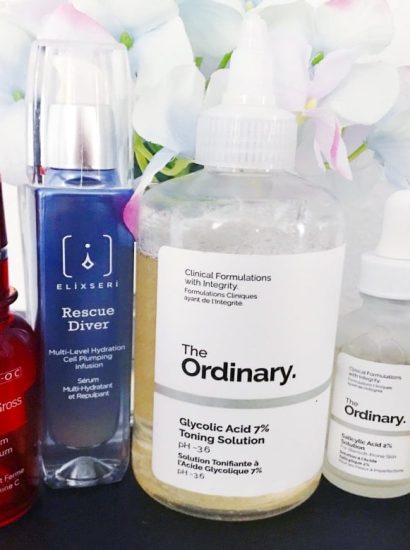If you have sensitive skin, you know how tricky it can be to find the right skincare routine. The wrong products can lead to irritation, redness, dryness, or even breakouts. But don’t worry! With the right approach, you can achieve a healthy, glowing complexion without discomfort.
In this article, we’ll share 10 must-know tips to help you care for your sensitive skin—gently and effectively. From choosing the right cleansers to avoiding harsh ingredients, these expert-backed tips will ensure your skin stays calm and radiant.
Choose a Gentle, Fragrance-Free Cleanser
Harsh cleansers strip away natural oils, leaving sensitive skin feeling dry and irritated. Instead, opt for a mild, sulfate-free cleanser that removes dirt without disrupting your skin’s natural barrier.
✔ Look for hypoallergenic, fragrance-free formulas
✔ Avoid alcohol-based or foaming cleansers
✔ Use lukewarm water to prevent further irritation
A great choice is micellar water or a cream-based cleanser, which effectively removes impurities without over-drying your skin.
Always Patch Test New Products
One of the biggest mistakes people with sensitive skin make is introducing too many products at once. To avoid unexpected reactions, always do a patch test before using a new product.
✔ Apply a small amount on your inner wrist or behind the ear
✔ Wait 24–48 hours to check for irritation, redness, or itching
✔ If no reaction occurs, it’s safe to use on your face
This simple step can save your skin from unexpected breakouts and allergic reactions!
Hydrate with a Lightweight, Soothing Moisturizer
Sensitive skin thrives on hydration, but heavy creams can sometimes clog pores. Instead, go for a lightweight, fragrance-free moisturizer that locks in moisture without irritation.
✔ Look for ingredients like hyaluronic acid, ceramides, and aloe vera
✔ Avoid products with fragrances, dyes, and essential oils
✔ Apply moisturizer immediately after cleansing to lock in hydration
A good option is a gel-based moisturizer for oily-sensitive skin or a cream-based one for dry-sensitive skin.
Avoid Harsh Exfoliation – Go Gentle Instead
Exfoliation helps remove dead skin cells, but overdoing it can lead to inflammation and redness. Instead of scrubs with large particles, choose a mild exfoliant:
✔ Lactic acid or PHA-based exfoliants (gentler than AHAs or BHAs)
✔ Soft washcloths or konjac sponges instead of rough scrubs
✔ Limit exfoliation to 1–2 times a week
Over-exfoliating can damage your skin barrier, making sensitivity worse—so be gentle!
Use Sunscreen Daily (Even Indoors!)
UV rays can cause premature aging, redness, and irritation, especially for sensitive skin. Make sunscreen a non-negotiable step in your routine!
✔ Choose a mineral sunscreen with zinc oxide or titanium dioxide
✔ Go for SPF 30 or higher
✔ Reapply every 2 hours when outdoors
Chemical sunscreens can cause irritation, so physical sunscreens are a safer option for sensitive skin.
Watch Out for Irritating Ingredients
Certain ingredients are notorious for causing flare-ups in sensitive skin. Always check labels and avoid:
Alcohol (dries out the skin)
Fragrances & essential oils (can trigger allergic reactions)
Sulfates (strips natural moisture)
Parabens (may disrupt skin balance)
Instead, look for soothing ingredients like aloe vera, chamomile, and oat extract.
Keep Your Skincare Routine Simple
More products don’t always mean better results! Overloading your skin with too many active ingredients can lead to breakouts and irritation.
✔ Stick to a basic routine: cleanser, moisturizer, sunscreen
✔ Introduce one new product at a time
✔ Less is more—your skin will thank you!
Protect Your Skin from Environmental Stressors
Pollution, weather changes, and even indoor heating can trigger sensitivity and dryness. Take steps to shield your skin from these stressors:
✔ Use a hydrating mist when in dry environments
✔ Apply a barrier-repairing moisturizer in cold weather
✔ Sleep with a humidifier to prevent overnight dryness
A strong skin barrier means less irritation!
Eat a Skin-Friendly Diet
What you eat directly impacts your skin’s health. Avoid foods that cause inflammation and focus on a nourishing diet.
✔ Eat antioxidant-rich foods (berries, leafy greens)
✔ Stay hydrated with water and herbal teas
✔ Reduce processed foods, dairy, and sugar (these can trigger breakouts)
A healthy diet = healthy, glowing skin!
Listen to Your Skin & Seek Professional Help When Needed
Your skin knows best! If you notice persistent irritation, redness, or reactions, don’t ignore them.
✔ Take breaks from harsh products
✔ Adjust your routine based on your skin’s needs
✔ Consult a dermatologist if you experience chronic sensitivity
A professional can help you identify triggers and create a customized routine that works best for you.
Conclusion
Caring for sensitive skin doesn’t have to be complicated. By following these 10 must-know tips, you can build a gentle, effective skincare routine that keeps your skin healthy, calm, and glowing.
Use gentle, fragrance-free products
Avoid harsh exfoliation & irritating ingredients
Stay hydrated & protect your skin from UV rays
Listen to your skin and keep your routine simple
FAQs
What is the best skincare routine for sensitive skin?
A simple routine: gentle cleanser, hydrating moisturizer, and mineral sunscreen. Avoid harsh ingredients and keep products minimal.
Which ingredients should I avoid for sensitive skin?
Avoid alcohol, sulfates, parabens, fragrances, and essential oils, as they can cause irritation.
Can I use retinol if I have sensitive skin?
Yes, but start with a low concentration (0.25% or less) and apply only 2-3 times a week to avoid irritation.
How do I reduce redness in sensitive skin?
Use soothing ingredients like aloe vera, chamomile, or green tea extract. Also, avoid hot showers and exfoliating too often.
Is exfoliating good for sensitive skin?
Yes, but stick to gentle exfoliants like lactic acid or PHAs and limit exfoliation to once or twice a week.
What type of sunscreen is best for sensitive skin?
Choose a mineral sunscreen with zinc oxide or titanium dioxide—they’re gentler and less likely to cause irritation.
Also read: 10 Best Sunscreens for Oily Skin That Won’t Clog Pores





